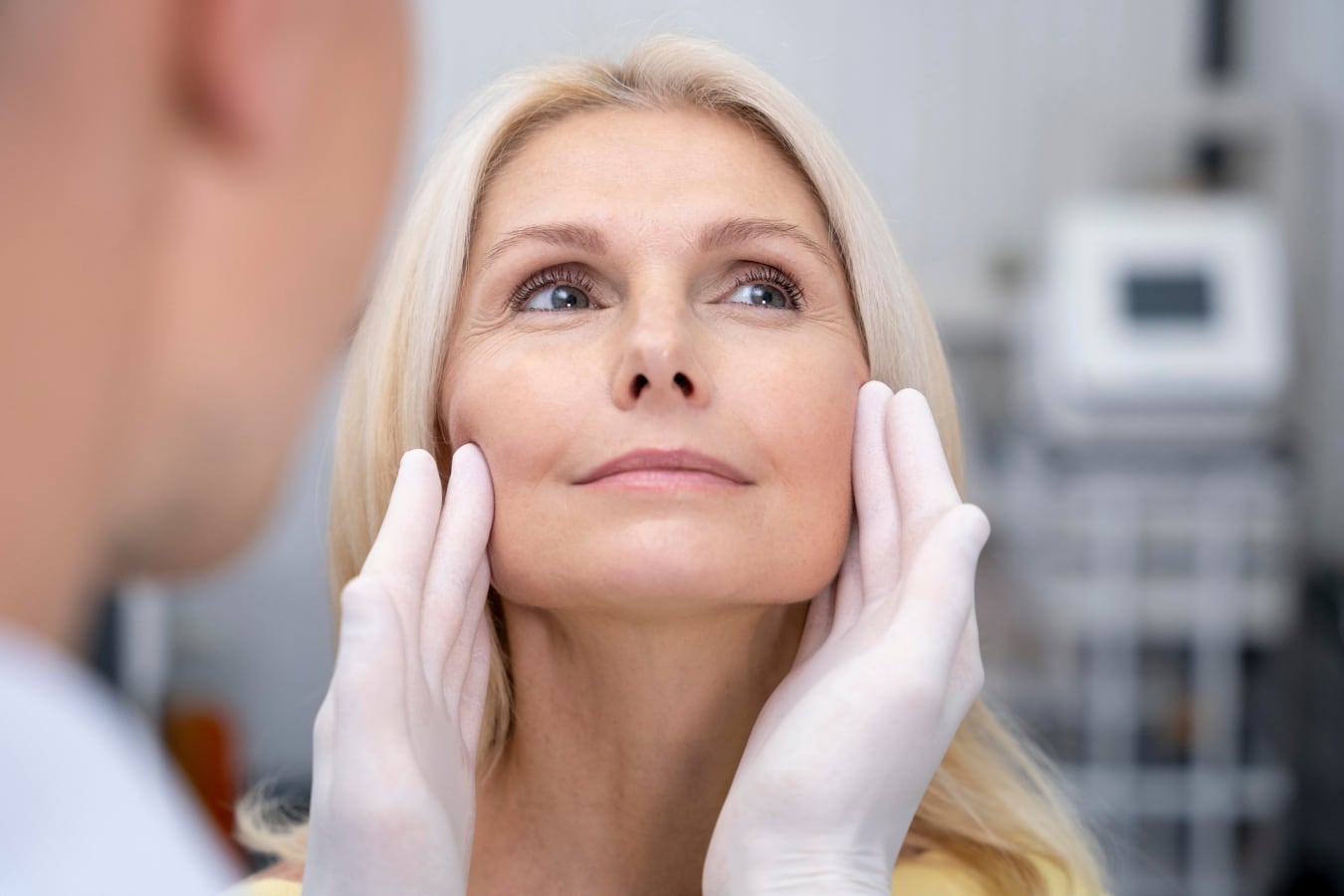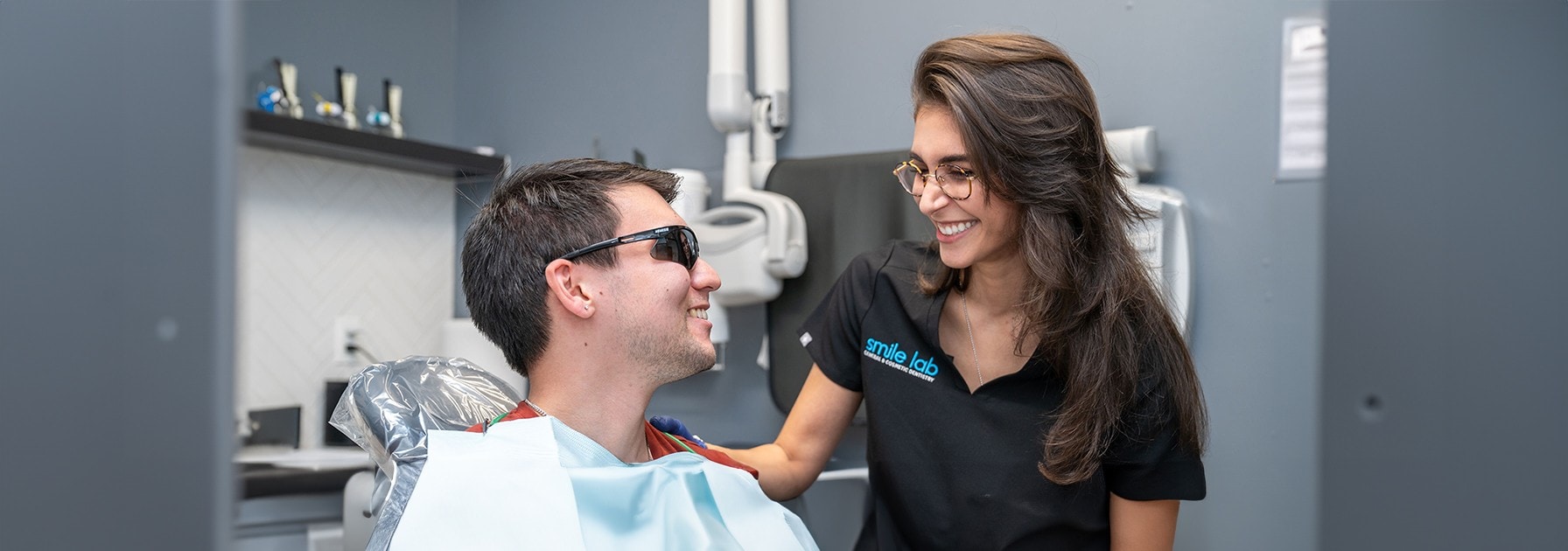Endodontics
Endodontics is a specialized branch of dentistry that addresses diseases and injuries of the tooth pulp and tissues surrounding the root of a tooth. Root canal treatment, the most commonly known procedure in endodontics, involves removing infected or damaged pulp, cleaning and shaping the inside of the root canal, then filling and sealing the space. This procedure can save a tooth that would otherwise need to be extracted.
Root canals play an integral part in endodontics. When a tooth’s pulp or nerve tissue becomes damaged, it breaks down, allowing bacteria to multiply within the pulp chamber. The presence of bacteria and other decayed debris can cause an infection or abscessed tooth, leading to severe pain and swelling. A root canal treatment removes this infection and prevents it from spreading, preserving the natural tooth and allowing you to maintain your oral health.
Re-Treatment
In some cases, a tooth that has received endodontic treatment may fail to heal, or pain may continue to exist. Sometimes, the tooth can become painful or diseased months or even years after successful treatment. When this occurs, endodontic re-treatment can be a good option.
This procedure involves removing the crown or restorative material, if any, to access the root canal filling material. Once accessed, our expert team removes the old filling, cleans the root canals and closely inspects the inside of the problematic tooth using magnification and illumination. After identifying and treating the cause of the issue, the root canal is refilled and sealed, and a new crown or restoration is placed on the tooth. This procedure gives the tooth a second chance to heal properly.
At Smile Lab, we are committed to treating these intricate cases with the highest level of professionalism, prioritizing your comfort and satisfaction at every step.
Periodontics
Periodontics is another specialized area of dentistry, focusing on the prevention, diagnosis, and treatment of diseases affecting the gums and supporting structures of the teeth. In essence, Periodontics is a specialized branch of dentistry focused on the care of your gums and bones surrounding your teeth. This can include treating conditions such as gingivitis (inflammation of the gums), periodontitis (gum and bone disease), and performing procedures such as scaling and root planing.
Scaling and root planing is a deep cleaning method that involves removing plaque and tartar from above and below the gum line (scaling) and smoothing out rough spots on the tooth root where bacteria tend to gather (planing). This helps to eliminate the bacteria that contribute to periodontal disease and allows the gums to heal and reattach to the teeth.
Periodontics also includes more advanced procedures such as periodontal surgery, dental implants, and gum graft surgery. These treatments can help patients who have advanced periodontal disease or those who want to improve the aesthetic appearance of their gums and smile. At Smile Lab, our skilled periodontists are dedicated to ensuring that you receive the best possible care for your gums, helping you maintain a healthy and confident smile.
TMJ/TMD
Temporomandibular Joint Disorder (TMD) can be a significant source of discomfort, limiting your ability to chew, speak, or even smile without pain. But you do not have to live with this discomfort forever. Our state-of-the-art TMJ treatments can provide you with the relief you’re seeking.
Our specialist team understands the intricate mechanics of the temporomandibular joint and can offer personalized treatment plans to alleviate symptoms and improve your oral health.
What is TMJ/TMD?
The temporomandibular joint connects the jawbone to the skull, acting as a hinge that allows for movement while speaking, chewing, and yawning. When this joint becomes dysfunctional, it can cause pain and discomfort in the jaw, face, neck, shoulders, or even down into the arms and fingers.
TMJ disorders can be caused by a variety of factors, including stress, trauma to the jaw or head, misalignment of the teeth or jaw, arthritis, and even genetics. Symptoms may include:
- Jaw pain or soreness
- Difficulty opening or closing the mouth
- Clicking or popping sounds in the jaw
- Headaches
- Earache or ringing in the ears
- Neck, shoulder, or back pain
If you are experiencing any of these symptoms, it is essential to seek treatment from a qualified professional.
How is TMJ/TMD Treated?
Our team of specialists will conduct a thorough evaluation to determine the root cause of your TMJ disorder. This may involve taking X-rays, performing a physical examination, and evaluating your bite and jaw movement.
Treatment options may include:
- Lifestyle changes such as stress management techniques
- Physical therapy exercises to strengthen jaw muscles
- Oral appliances to reduce pressure on the joint and prevent teeth grinding
- Orthodontic treatment to correct misaligned teeth or jaws
In severe cases, surgery may be recommended, but this is typically only considered as a last resort when all other options have been exhausted.
Benefits of TMJ/TMD Treatment
Seeking treatment for your TMJ disorder can provide numerous benefits, including:
- Reduced pain and discomfort in the jaw, face, neck, and shoulders
- Improved ability to open and close the mouth without difficulty or pain
- Better overall oral health and function
- Increased quality of life and ability to enjoy everyday activities without discomfort
Do not let TMJ disorder hold you back any longer. Our team is dedicated to providing personalized, effective treatment options to help you find relief and improve your overall oral health. Request a consultation today to learn more about our TMJ/TMD treatments and take the first step towards a pain-free life.
Nightguards & Retainers
Oral appliances are an effective and discreet treatment for conditions such as sleep apnea or teeth grinding. An oral appliance such as a nightguard can restore your sleep helping to improve your mood during the day and revitalize your well-being.
NightGuards
Sleep Apnea Solutions
At Smile Lab, we take a holistic approach to treatment, meaning we like to prioritize our patient’s overall health and this includes sleep health. Sleep apnea, or as it is commonly known obstructive sleep apnea, not only disrupts a person’s sleep by narrowing the airways at night but can be potentially life-threatening, putting you at a higher risk of a stroke or heart attack.
Fortunately, this disorder can be managed with a range of treatments, but oral appliance therapy is a hassle-free way to control obstructive sleep apnea. The oral appliance comfortably holds the jaw open at night, allowing the airways to open up and oxygen to enter the lungs. Some benefits of this type of therapy are:
- Non-Invasive — No surgery is needed.
- Ease of Use — Some patients prefer oral appliances because they can be easy to wear.
- Small and Easy to Transport — Traveling with your sleep apnea treatment is easy, and they can be fitted into your handbag or carry-on luggage.
Not to mention nightguard appliances are one of the best and most affordable ways to manage sleep apnea, giving you a restful night’s sleep back. Request an appointment with us today and we can talk you through the best treatment for your needs.
Teeth Grinding Solutions
Teeth grinding can occur day or night and for some, it can be a habit they do subconsciously. Grinding teeth at night is quite common and although it may occur only for a few seconds at a time, it can be enough to make a lasting impact. You may need to be fitted for a nightguard, which can help you protect your teeth and prevent serious damage from occurring. This night guard will be customized to your mouth so it will be comfortable while you sleep.
If you are waking up with a sore jaw or headache, or you notice chipped or weakened teeth, request an appointment with us, and our experts can examine your mouth and jaw muscles for signs of teeth grinding and provide the best solution for you.
Retainers
Retainers play a critical role in maintaining your new, perfect smile after orthodontic treatment. They’re custom-made appliances designed to hold your teeth in place once braces or aligners have done their job. Teeth have a tendency to move back to their original positions — a situation known as relapse. Retainers combat this, ensuring your teeth remain in their desired positions. They also aid in the final settling of teeth into their new positions, help with minor bite adjustments, and allow your jawbone to reform around your teeth. Retainers are not just an optional add-on; they’re an integral part of your orthodontic journey. Remember: a beautiful smile is an investment, and a retainer is your insurance policy. Request an appointment with us, and let’s ensure that your smile remains stunning for years to come.
Botox
When it comes to maintaining and enhancing your facial aesthetics, Botox offers a versatile and effective solution. Botox, or botulinum toxin, is a neurotoxic protein that temporarily paralyzes muscles, smoothing out wrinkles and fine lines for a more youthful appearance. However, the application of Botox goes beyond cosmetics. In the field of dentistry, Botox is increasingly being employed for a variety of therapeutic uses.
Botox can help provide relief from temporomandibular joint disorders (TMJ/TMD), a condition that causes pain and discomfort in the jaw. By relaxing the muscle tension in this area, Botox can alleviate associated symptoms such as headaches, jaw pain, and bruxism (teeth grinding). Moreover, it can be used in orthodontics to retrain muscles during orthodontic therapy, helping to achieve more optimal results.
At Smile Lab, our trained professionals administer Botox treatments in a safe, controlled environment, ensuring the best results for your aesthetic and therapeutic needs.







